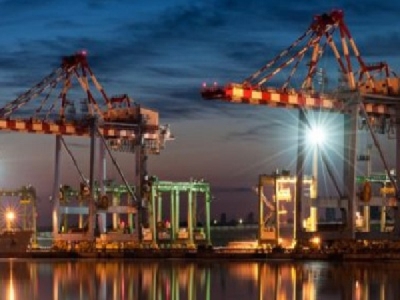
Posted on May 10, 2018
By Rachid Bouda, Port Strategy
Until recently, investing in Ukrainian port infrastructure was considered quite risky, due to an outdated regulatory framework which reflected the Soviet model of the functioning of ports.
The main models for investment in infrastructure projects (particularly in port infrastructure) were the lease of state property and joint activity agreements. Both options worked in some cases – for example, at the port of Odessa – but failed in other cases – for example in Chornomorsk port, previously Ilychevsk.
Today, many companies operate private terminals with state-owned or private berths, including Nibulon and Nika-Tera in Mykolaiv, TIS in Yuzhny and Germany’s HHLA Group in Odessa. A number of other private terminals still operate port infrastructure under leases, joint activity agreements or other arrangements.
To achieve macroeconomic stabilisation and sustainable growth, Ukraine has switched its focus to supporting modernisation of infrastructure assets that are considered vital to the economy. With a great number of Ukraine’s state-managed and -owned port assets outdated, significant investment is needed for modernisation. Here, both the government and the private sector can play important roles.
Falling throughput and income of publicly-operated ports has only accelerated the need for the relevant ministry to consider updating the legal framework to match the Ukrainian market’s requests for private investments in ports.
To this end, important steps have now been taken by the Ministry of Infrastructure. Among these is the establishment of an office dedicated to initiating and structuring PPP projects; discounting port dues by 20%, undertaking important dredging works in channel approaches and at berths; and engaging international finance institutions, such as the IFC, EBRD and EIB, to prepare comprehensive and transparent documentation and procedures.
These changes combined with the high transit potential, the growth of agricultural exports and a favourable geographical position have positioned Ukraine as one of Europe’s most favoured infrastructure investment destinations.
Legal changes
For this potential to be fulfilled and for the country to reap the benefits of its attractiveness and competitive strengths, the Ukrainian Ministry of Infrastructure has not only been chasing the world’s leading port operators, such as DP World and Hutchison Ports, to invest, but has also initiated crucial and necessary changes in the legal framework.
A new law on concessions drafted by the Ministry jointly with international experts was presented on March 14 to the Ukrainian Parliament for approval. The law will enable investors to acquire usage rights both to the property under concession and the underlying land plots without the need to go through additional land lease procedures, as is currently the case.
This new law will allow the private sector to play an important role in the modernisation of Ukrainian port assets, which will remain under state ownership. Ukraine will look to the public-private partnership (PPP) model as an effective and efficient form of co-operation between the state and business, as has already been proven in many other countries.
The law will also allow investors that currently have leases of state-owned property to transfer to the PPP concession model without the need for a public tender.
The first pilot projects of PPPs in Ukraine will be focused on projects in infrastructure, in particular port projects. Indeed, preparations for the concession of state-owned stevedoring company Olvia and Kherson Sea Commercial Port were launched on March 13 during a kick-off meeting with a consortium of international consultants made up of Castalia, MTBS/Interlegal, EY, Tebodin and Gide, who were chosen by the EBRD to develop feasibility studies and prepare tender documents for both ports.
Handling of grain has already attracted significant foreign direct investment to Ukraine with many terminals built over the past few years by or for international commodities traders. A key project is the ongoing investment of MV Cargo, which is building a new grain terminal in Yuzhny port (for Cargill) with a capacity of 5m tons per year and one-time storage capacity of 290,000 tons of grain.
Implementing PPP contracts and foreign investments in Ukraine involves allocating different degrees of risk from the state to the private concessioner, as well as dealing with different stakeholders and authorities. Now is the time for investment in the port sector of Ukraine, with support from experts and consultants with knowledge of international and local environment and regulations.
Source: Port Strategy





